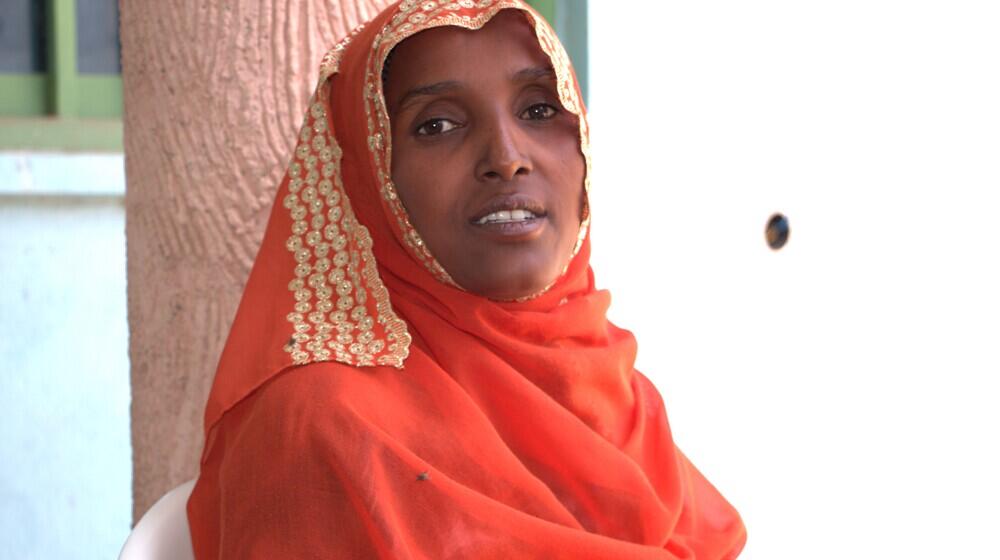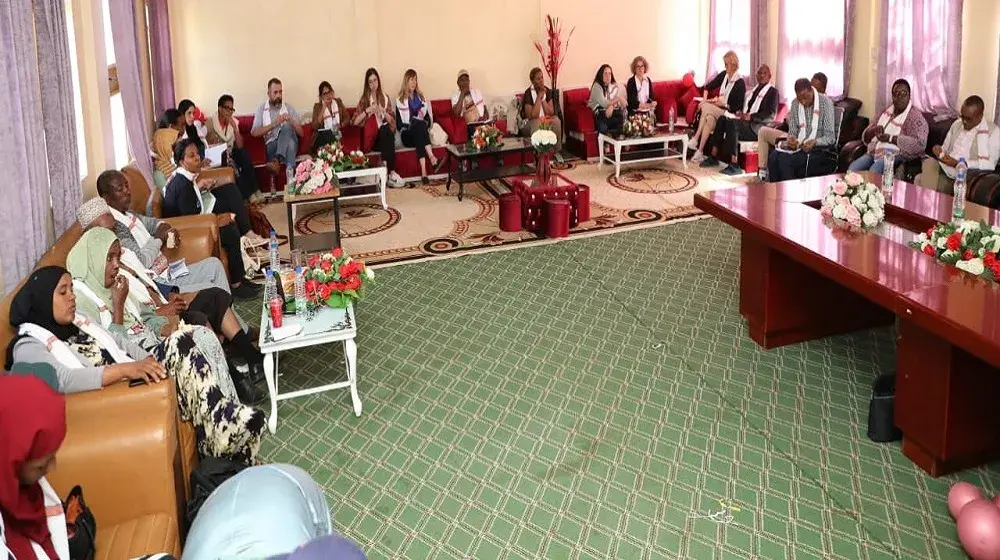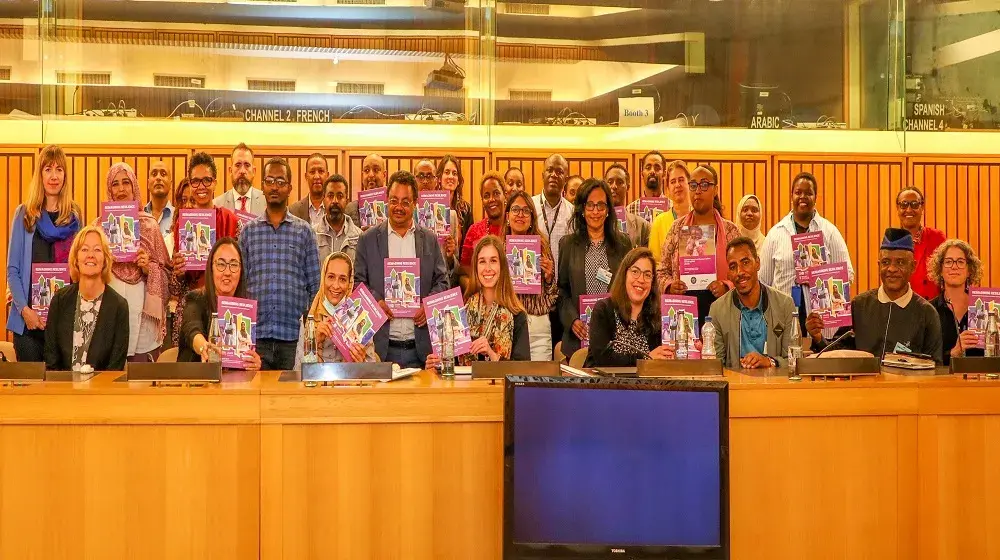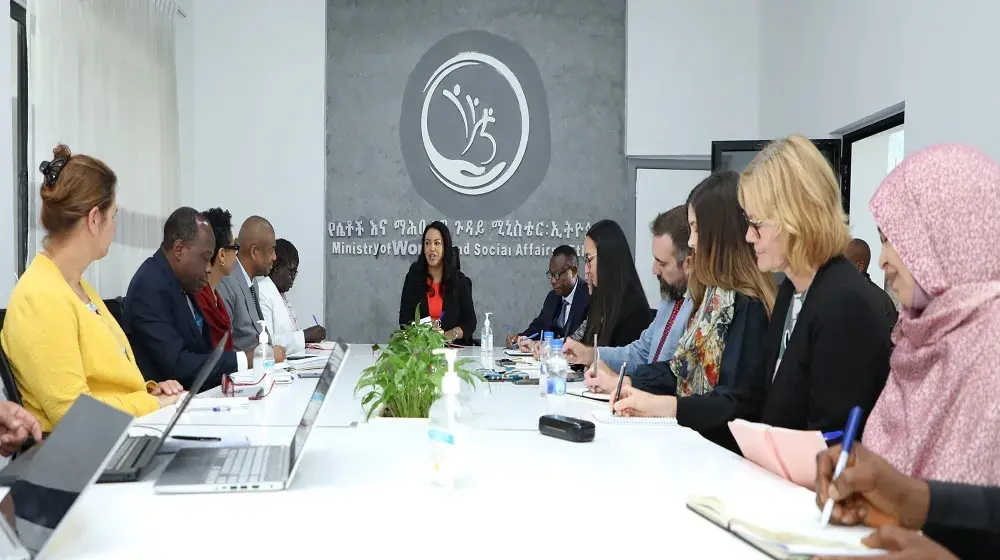Hasna Nuru is a facilitator of the married girls’ club in the UNFPA supported programme intervention on the prevention of child marriage and Female Genital Mutilation (FGM) in the Abala District of Afar Region which is funded by the UN Association in Sweden. She has been engaged committed in the effort which she says has been formidable. But she notes that things haven’t been as challenging as they are now.
“The awareness of our community was growing well, and we were making headway in the effort at fighting child marriage and FGM,” Hasna says. However, the COVID-19 pandemic and the two-year devastating conflict in northern Ethiopia which engulfed the Afar Region as well derailed the promising gains made, says Hasna.
Hasna admits that child marriage and FGM are deep-rooted practices but says that the community is ready and willing to embrace changes as was demonstrated in the progress made in the near past when the programme started working there. But some challenges associated with COVID-19 and the conflict obliged the community to act otherwise increasing the incidences of these two harmful practices.
“Many women and girls were violated during the conflict and the economic hardships brought about by the conflict were too much to bear for the community,” Hasna says. She indicates that the members of the community were marrying off their underage daughters for fear of the high incidences of sexual violence during the conflict, thus increasing the cases of child marriage. She adds that the incidences of FGM have also increased during the conflict when tens of thousands were displaced.
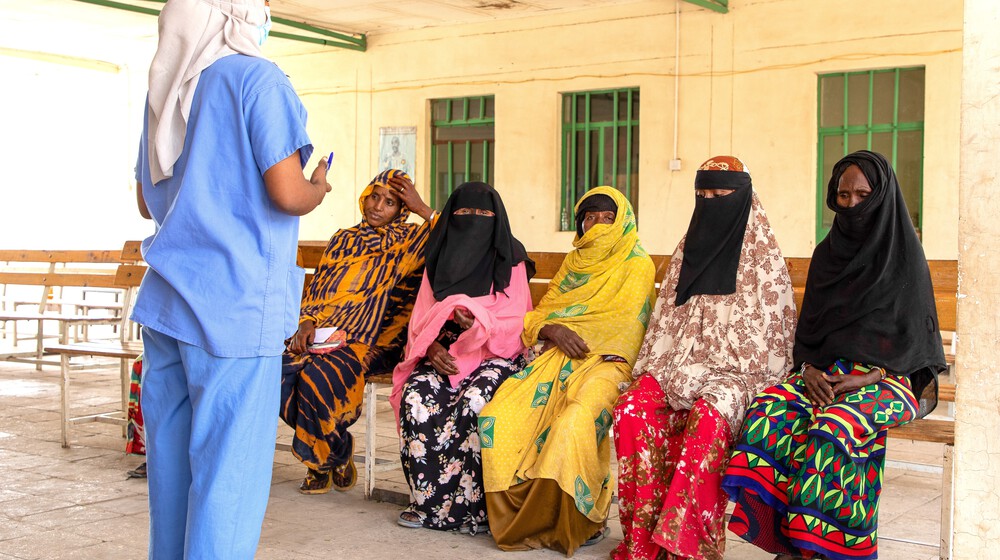
“In the face of such situations the rates of child marriage and FGM increased a lot jeopardizing the gains we have made in the abandonment of the harmful practices,” says the Head of the Abala District Women and Social Affairs Office. The Office has been coordinating the implementation of the Integrated Project on Prevention of Child Marriage and FGM for the past seven years in the Abala District. The project was piloted in the Afambo District in 2012 where all the localities in the pilot district publicly declared abandonment of both harmful practices. Promising strides were also being made in the 13 localities of the Abala District in the abandonment of both harmful practices until they were jeopardized by the humanitarian crisis triggered by COVID-19 and the northern Ethiopia conflict.
Hasna comments that the work on the fight against child marriage and FGM needs to be revitalized. “In light of the fact that community conversation sessions and other community engagement activities are difficult to organize, we are trying to go out to the community to teach them,” she says as many communities are still displaced.
Hasna mentioned that they are using such platforms as immunization campaigns to reach communities to continue creating awareness on the harms of child marriage and FGM. But she notes that the effort remains challenged by transportation shortages.

